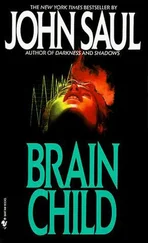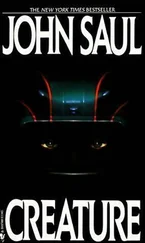Phillip Sturgess and Alan Rogers stood on Prospect Street, gazing across at the sullen brick facade of the long-abandoned mill. Its windows, long since bereft of glass, were boarded over, and the oncered bricks bore a thick accumulation of grime that had turned them nearly black. At the top, some of the crenellations that had once been the building’s sole claim to architectural interest had crumbled away, giving the abandoned factory a ruined look.
The two men stood silent for a long time. Alan finally sighed, and shook his head.
“I don’t know. On paper, it all looks great, but when you look at what we really have to work with — well, I just don’t know. It might be easier to tear it down and start over.”
Phillip nodded. “It would be cheaper, too. But we’d lose something if we did that. There’s history in that building, Alan. Almost the whole history of Westover is tied up in the mill.”
“Don’t you mean the history of the Sturgesses?” Alan replied.
“I’m not sure there’s a difference.” Then he saw the grin on Alan’s face, and chuckled. “All right, so I sounded like my parents. But the whole attraction of the place will be the fact of the restoration, so we don’t really have any choice, do we? And the structure’s sound, believe it or not. I had an engineer survey it a few months ago.”
Alan regarded the other man skeptically. “Did your father know that?”
“You know how Father felt about the mill.”
“And he had a right to, after what happened to your brother.”
There was a silence; then Phillip spoke again, his voice softer. “What happened to Conrad Junior was an accident, despite what Father believed.” Then, when Alan said nothing, Phillip turned to face him. “Alan, you don’t believe all those stories, do you?”
“The ghost stories? Of course not. But apparently your father did.”
Phillip’s expression tightened. “He’s dead now.”
“Yes.” Alan paused, then chose his words carefully. “What about Carolyn? What does she think of all this?”
Phillip eyed Alan shrewdly. “The fact that you asked the question suggests to me that you know the answer.”
“I just wondered,” Alan replied, shrugging noncommittally. “She just always hated this place, that’s all.” Then, meeting Phillip’s eyes, he went on. “A lot of people in Westover hate this mill, Phillip. They see it as a symbol, and the memories it evokes aren’t pleasant ones. A lot of the children of Westover died in that building—”
“That was a long time ago, Alan,” Phillip interrupted. “And while I’m not pretending it was right, child labor went on all over New England back then. It wasn’t just here, and it wasn’t just the Sturgesses.”
“I’m not saying it was,” Alan agreed. “All I’m saying is that a lot of people here still look at that mill, and think about what went on in it.”
“Something none of them really remembers,” Phillip pointed out. “Let’s not forget that the mill’s been closed for a century, and stories get exaggerated. If Father had been smart, he’d have done something with the property years ago.” Suddenly Phillip cocked his head, and gazed at Alan suspiciously. “Alan, is there something you’re not telling me? Is the board likely to hold up the permits just because of the history of the building?”
Alan shook his head. “Nope. The permits will go through without a murmur. As far as the board’s concerned, history is history. If turning this old wreck into a mall full of cute little shops will make people in Westover some money, the aldermen are all for it.”
“But you doubt that it will,” Phillip stated.
“I do,” Alan agreed, but then smiled ruefully. “Of course, as your wife will tell you, I’m not the most imaginative son-of-a-bitch around, and never think anything will work. So why don’t we go inside and have a look around, and I can tell you just why the dump will collapse when we start working on it.”
“And I,” Phillip laughed, “will expect you to buy me a drink when nothing collapses at all.”
They crossed Prospect Street, walked to the corner of the vast building, then turned left onto a weed-choked path that paralleled the building’s long northern wall. Halfway down, they came to a metal door, its paint badly weathered. But when Phillip slipped a key into the padlock that hung from an oversized hasp, it opened easily.
“Father had the lock checked every month, from the day Conrad Junior died. Sometimes he did it himself. When I was a kid, I used to beg him to bring me along and show me the inside of the mill, but he never would. I guess — well, I guess he never got over my brother’s death at all.”
“He really never even let you look around?” Alan asked.
Phillip shook his head. “It used to drive me nuts. Sometimes I’d lie awake nights, looking down at it from my window, plotting how I could sneak in. But then I’d think about what Father would do to me if I got caught, and I never tried it.” His face twisted into an abashed grin. “Do you know, even when I came down here with the engineer, I almost couldn’t bring myself to go inside? I kept thinking Father was watching me from Hilltop, and when I got home, he’d skin me. Forty-three years old, and still afraid of my father. Some tycoon, hunh?”
Alan chuckled, and thumped his friend’s back. “Afraid you just don’t pull off the tycoon act very well at all, Phillip, and that’s the truth. You sure you’re a real Sturgess?”
“I’m going to accept that little bit of snideness as a compliment, thank you very much,” Phillip replied. Then he pulled the door open, and stood back. “After you.”
Alan stepped through the door, and looked around curiously. It was almost pitch black in the interior, for only a little light filtered through the boarded windows. High overhead, a latticework of iron strutting supported the ceiling.
“In its day, that roof was considered quite an accomplishment. There weren’t many buildings this size with no pillars for the roof. It’s almost the size of a football field.”
“And almost as empty, too,” Alan observed. He kicked at the floor, and was surprised when there was no give.
“It’s oak. Solid oak, and three inches thick. Downstairs, there are beams and pillars everywhere. The engineer said he’d never seen anything quite like it.”
They prowled through the building, but Alan quickly realized there was little to see. It was simply an immense shell, with a few remnants of partitions still in place at the back, where the mill offices had been. Though it had suffered badly from neglect, the structure did, indeed, seem basically sound. After exploring the main floor, they headed toward a stairway leading to the basement.
Phillip switched on a flashlight, and they started down. At the bottom of the stairs, Phillip suddenly stopped.
“This is where they found Conrad Junior,” he said softly. “Apparently he tripped, and fell on some kind of tool.”
Alan frowned, then took the flashlight from the other man and cast its beam around the expanse of the basement. Shadows from the closely spaced columns were everywhere, and the beam of light finally seemed to lose itself in the distance. But except for the forest of supporting pillars, the basement, like the floor above, seemed empty.
“What was a tool doing here? It looks like the place was cleared out a hundred years ago.”
“Search me,” Phillip replied. “When it happened, I hadn’t even been born yet. In fact,” he added, his voice taking on a note of melancholy that Alan had never heard before, “I guess I was the replacement child. I don’t think Mother intended having more than one, but when Conrad Junior died, they decided to have me.”
Читать дальше












